New Horizons: Restructuring the basic and clinical sciences beyond USMLE
Join the faculty from the Baylor College of Medicine in Houston, Texas to discuss our experiences with the foundational sciences curriculum in light of changes to USMLE Step 1 scoring. The webinar will cover current curricular challenges, and how our faculty are addressing the vertical integration of the foundational sciences.
Objectives:
1. Discuss the challenges and opportunities of integrating basic science education in the context of changes to USMLE Step 1 scoring.
2. Define the roles of faculty in designing and implementing timely basic science education that underpins clinical reasoning skills (foundational thinking).
3. Demonstrate how basic and clinical sciences can be interwoven using spiral integration and focused exposures to basic science concepts
Research in Medical School—Impact on Career Path
This session will explore the impact of medical student scholarly activities on skill development and career trajectory, using data from the medical education literature and the National Resident Matching Program. Questions about the use of student research in the residency application process will be addressed, including how program directors use research participation and productivity as proxy measures of desirable characteristics among program applicants.
Integrating Basic Science in the Clerkships: Innovative Strategies and Persistent Challenges
Curricular reforms in medical education have promoted enhanced integration of basic and clinical science to promote transfer of knowledge into practice. While integration has been modestly successful in pre-clerkship curricula, incorporating basic science into the clerkships remains a perplexing challenge. This session will highlight innovative instructional and assessment strategies that are designed to encourage integration of the basic sciences during clerkships. The session will also discuss emerging data concerning learner perceptions of basic science integration, noting opportunities and barriers.
Identity Shape Shifting: How basic science teaching practices can foster identity transformation from medical student to medical professional
We have all heard of identity crises as they relate to our personal lives, but professional identity “crises” exist as well. As students transition into their health professions curriculum, they must develop their professional identities from that of a student into that of a healthcare professional; a process which many find challenging. If learners’ fail to develop their professional identity as they progress through medical school, crises can occur. Foundational science educators can help foster medical student professional identity development (PID) through their teaching practices. While there can be an embedded belief that science knowledge and medical professional identity are separate and distinct, there are effective ways to pedagogically integrate these in a way that does not sacrifice one (i.e. science knowledge) for the other (professional identity). With this in mind, this webinar will provide: an overview of what professional identity is (and isn’t), mechanisms of PID development, ways foundational medical sciences can impact PID, and applied teaching practices science educators can implement to help support medical student PID.
Rethinking Assessment Strategies in the Basic Sciences as Step 1 Goes Pass/Fail
Step 1 going to Pass/Fail will have impacts on basic science education but may provide opportunities to reimagine assessments. The goal of this session is to explore how the changes in Step 1 scoring may influence approaches to the assessment of basic sciences. New assessment strategies recently implemented at the University of Central Florida College of Medicine will be presented and discussed. Potential assessments of the future will be explored.
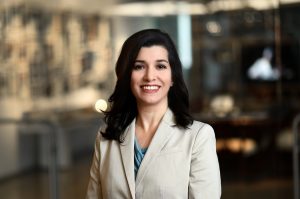 Nadia Ismail, MD is the Senior Associate Dean for Curriculum at the Baylor College of Medicine School of Medicine (BCM SOM) in Houston Texas. Her interests include curriculum development and assessment. She currently leads efforts for the curriculum renewal project at BCM SOM.
Nadia Ismail, MD is the Senior Associate Dean for Curriculum at the Baylor College of Medicine School of Medicine (BCM SOM) in Houston Texas. Her interests include curriculum development and assessment. She currently leads efforts for the curriculum renewal project at BCM SOM.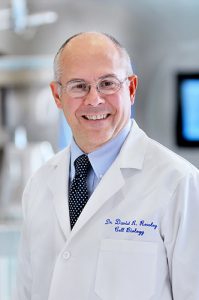 David Rowley, PhD is the Assistant Dean of Foundational Sciences at Baylor College of Medicine and a Professor of Molecular and Cellular Biology. His interests are in curriculum renewal and pedagogy of foundational sciences training and integration. He has many years of experience in foundational coursework.
David Rowley, PhD is the Assistant Dean of Foundational Sciences at Baylor College of Medicine and a Professor of Molecular and Cellular Biology. His interests are in curriculum renewal and pedagogy of foundational sciences training and integration. He has many years of experience in foundational coursework.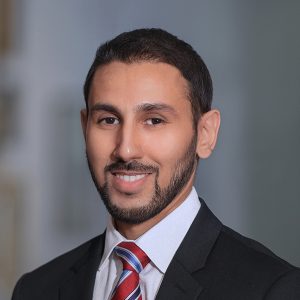 Munder Zagaar PharmD, PhD is an Associate Professor of Foundational Sciences at Baylor College of Medicine (BCM SOM) in Houston, Texas. He is currently the director of pharmacology and lead its integration for the curriculum renewal project at BCM SOM. Munder has 10 years experience in curriculum development and learner-centered teaching for health profession students from diverse backgrounds. His interests include integrating clinically relevant pharmacology using equitable assessment and instructional design.
Munder Zagaar PharmD, PhD is an Associate Professor of Foundational Sciences at Baylor College of Medicine (BCM SOM) in Houston, Texas. He is currently the director of pharmacology and lead its integration for the curriculum renewal project at BCM SOM. Munder has 10 years experience in curriculum development and learner-centered teaching for health profession students from diverse backgrounds. His interests include integrating clinically relevant pharmacology using equitable assessment and instructional design.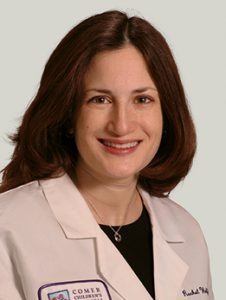 Dr. Wolfson is Assistant Dean of Medical School Research and Associate Professor of Pediatrics at the University of Chicago Pritzker School of Medicine. Dr. Wolfson directs the Scholarship & Discovery curriculum and serves as the faculty lead for all scholarly opportunities for Pritzker medical students. Her work related to medical student research has been noteworthy: she developed a novel Authorship curriculum, and she directs the Scholarly Concentrations Collaborative, a group of medical education leaders who work together to grow opportunities for student research. Dr. Wolfson conducts NIH-funded research as part of the National Research Mentoring Network that aims to improve mentor training for women and minority medical students.
Dr. Wolfson is Assistant Dean of Medical School Research and Associate Professor of Pediatrics at the University of Chicago Pritzker School of Medicine. Dr. Wolfson directs the Scholarship & Discovery curriculum and serves as the faculty lead for all scholarly opportunities for Pritzker medical students. Her work related to medical student research has been noteworthy: she developed a novel Authorship curriculum, and she directs the Scholarly Concentrations Collaborative, a group of medical education leaders who work together to grow opportunities for student research. Dr. Wolfson conducts NIH-funded research as part of the National Research Mentoring Network that aims to improve mentor training for women and minority medical students.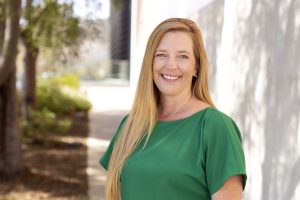 Dr. Michelle Daniel is Vice Dean for Medical Education and Professor of Clinical Emergency Medicine at the University of California, San Diego School of Medicine. She obtained her medical degree from Johns Hopkins Medical School in 2002 and her Masters in Health Professions Education from Maastricht University in the Netherlands in 2016. Dr. Daniel is an Associate Editor for Medical Teacher and serves on the board of the Best Evidence in Medical Education (BEME) Collaboration, Co-chairs the BEME Editorial Review Committee and directs the University of California, San Diego BEME International Collaborating Center. She is Past-President of the Directors of Clinical Skills Courses (DOCS). Her current scholarly interests include clinical reasoning and theories of cognition, the optimal timing of USMLE Step 1, clinical skills and well-being.
Dr. Michelle Daniel is Vice Dean for Medical Education and Professor of Clinical Emergency Medicine at the University of California, San Diego School of Medicine. She obtained her medical degree from Johns Hopkins Medical School in 2002 and her Masters in Health Professions Education from Maastricht University in the Netherlands in 2016. Dr. Daniel is an Associate Editor for Medical Teacher and serves on the board of the Best Evidence in Medical Education (BEME) Collaboration, Co-chairs the BEME Editorial Review Committee and directs the University of California, San Diego BEME International Collaborating Center. She is Past-President of the Directors of Clinical Skills Courses (DOCS). Her current scholarly interests include clinical reasoning and theories of cognition, the optimal timing of USMLE Step 1, clinical skills and well-being.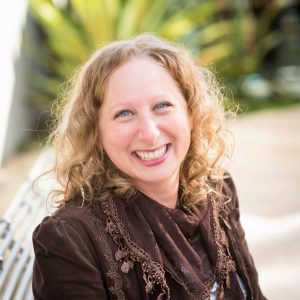 Associate Professor Michelle Lazarus is the Director of the Centre of Human Anatomy Education and Monash Centre for Scholarship in Health Education Curriculum Integration Network Lead. She is an award-winning educator and a Monash Education Academy Fellow. In addition to her medical teaching, A/Prof Lazarus runs a dynamic education research group exploring how medical education impacts learners’ healthcare professional identity formation, with a particular focus on uncertainty tolerance. In addition to her competitively funded work, she is the creator and host of AskAnatomist, a healthcare podcast, and is passionate about improving diversity & inclusion within anatomy education.
Associate Professor Michelle Lazarus is the Director of the Centre of Human Anatomy Education and Monash Centre for Scholarship in Health Education Curriculum Integration Network Lead. She is an award-winning educator and a Monash Education Academy Fellow. In addition to her medical teaching, A/Prof Lazarus runs a dynamic education research group exploring how medical education impacts learners’ healthcare professional identity formation, with a particular focus on uncertainty tolerance. In addition to her competitively funded work, she is the creator and host of AskAnatomist, a healthcare podcast, and is passionate about improving diversity & inclusion within anatomy education.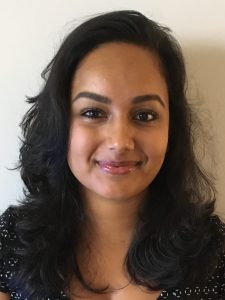 Shemona Rozario, MD.
Shemona Rozario, MD.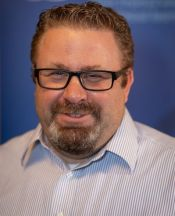 David M. Harris, PhD, is an Associate Professor of Physiology at the University of Central Florida College of Medicine. He is the course director of the Structure and Function module and has been implemented numerous active learning modalities in the module, including concept mapping, high fidelity patient simulations, and flipped classroom activities. He has published manuscripts on these models and continues to do collaborative research. He currently serves on the IAMSE Board of Directors and the Aquifer Sciences leadership team with a mission to improve integration between basic and clinical sciences.
David M. Harris, PhD, is an Associate Professor of Physiology at the University of Central Florida College of Medicine. He is the course director of the Structure and Function module and has been implemented numerous active learning modalities in the module, including concept mapping, high fidelity patient simulations, and flipped classroom activities. He has published manuscripts on these models and continues to do collaborative research. He currently serves on the IAMSE Board of Directors and the Aquifer Sciences leadership team with a mission to improve integration between basic and clinical sciences.